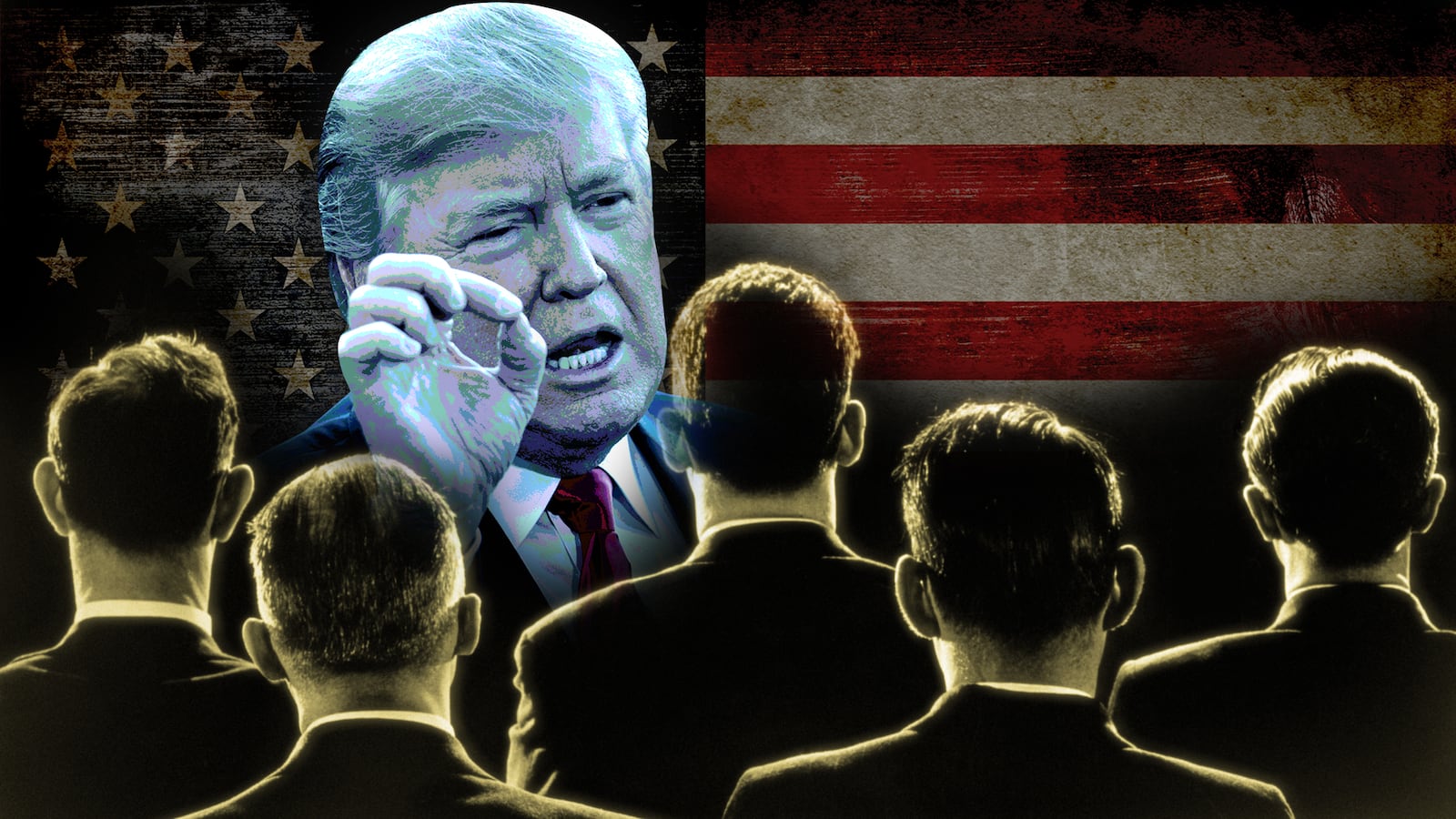On Friday morning, President Donald Trump announced another set of nominations for U.S. Attorney posts around the country. The list included four names, each with a solid legal background, each with strong roots in their respective communities, and they're all male.
In nominating Joseph Kelly for the District of Nebraska, Scott Murray for the District of New Hampshire, David Weiss for the District of Delaware, and Billy Williams for the District of Oregon, Trump continued a trend that has defined his staffing decisions.
Beyond any other factor, he has shown a proclivity to turn to men when filling out key positions.
Indeed, since he assumed office, Donald Trump has sent 489 nominations to the U.S. Senate for positions in the judicial branch and executive branches. Of those, The Daily Beast found, 396 were men—constituting just over 80 of all of Trump’s nominees.
The trend goes across government, though it is truly accentuated in certain fields. For example, Trump has nominated 282 men for high ranking cabinet positions compared to 77 women. He has nominated 55 men for tax, armed forces, veterans claims, district, appellate, and supreme court judgeships compared to 13 women. And after Friday's nominations, he has nominated 54 men to the 57 U.S. attorney posts he has filled out—an astounding 94.7%.
Numerous executive branch departments have not had a single woman nominated to their ranks. Though some of them have only a handle of confirmable positions, others like the Department of Agriculture and the Department of Energy have had seven nominees respectively to date. All of those nominees were men.
A request for comment from the White House was not returned.
Since the dawn of the American political experiment, men have played a truly outsized role. But progress has been made towards gender equality in recent years, albeit with a long way still to go. The current Congress has 21 female Senators, which is one more than the previous all time high. Of the 535 House members, 105 are women.
It is harder to measure movement in the executive branch, in part because it is spread out so widely. Trump has notably elevated women to critical posts inside his administration. His communications shop, for example, is run by women. And this came after a female campaign manager, current senior counselor Kellyanne Conway, spearheaded his surprising electoral victory.
But on the whole, his White House has taken a step back in terms of gender balance. Whereas 80.8 percent of Trump’s judicial nominees have been men, that figure was 57.9 percent during Barack Obama’s presidency (147 female judicial nominees to 202 male judicial nominees). A report from the Center for American Women and Politics, indeed, found that Trump has given the fewest percentage of top level nominations to women in almost 50 years. The last president with a lower ratio was Carter in 1977.
Trump has long been criticized as a chauvinist in his personal life. And in response to accusations of, among other things, sexual harassment and sexism, he and his allies have noted that his business empire has helped launched the career of numerous female executives. They continue to push this argument during Trump’s presidency too.
But the numbers tell a highly different story. One reason for the gender disparity could simply be an unwillingness for Trump to bring in people outside his usual circle, according to Debbie Walsh, director of the Center for American Women and Politics.
“It's not that there aren't women out there perfectly qualified to serve on the Republican side” Walsh told The Daily Beast, “but he's continuing to pull from the world he’s most connected to and not reaching outside that world.”
Diversity in presidential nominations only occurs when the administration makes it a priority, said Walsh, and Trump’s cabinet shows what happens when it’s neglected.
“There are plenty of women who could fill these positions but he's not appointing them,” she told The Daily Beast. "And we’re all losing out when that happens. Government suffers, the process suffers, and the outcome might not be as good without that healthy debate and discussion.”
- This story has been updated to reflect new nominations made.







